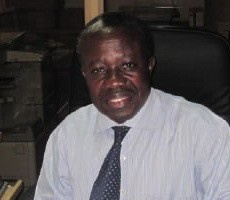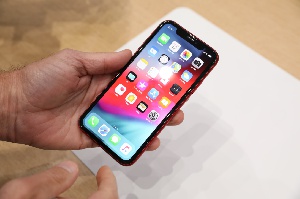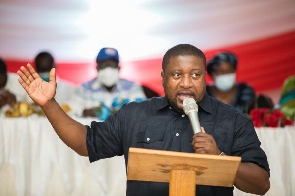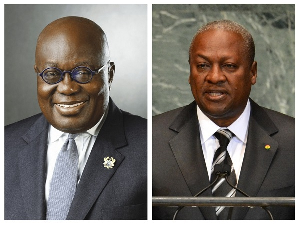 Dr. Kwabena Opoku Adusei, President of the GMA
Dr. Kwabena Opoku Adusei, President of the GMA
Ghana's doctors are likely to call off a strike that is seen as an early test of the government's ability to hold to the terms of an International Monetary Fund programme designed to restore economic stability.
The Ghana Medical Association union is under pressure from political, cultural and religious leaders to end its two-week industrial action over conditions of service, Dr. Kwabena Opoku-Adusei, president of the union, said on Friday.
"We may go back to work because of appeals from chiefs, religious leaders and other opinion leaders," he told Reuters. "We are likely to return to work, and not as happy people."
Doctors are due to meet at midday local time (1200 GMT) at the union headquarters in Accra to decide whether to call off the strike that so far has involved the withdrawal of emergency services, or to step-up their industrial action.
An end to the strike would be viewed as a victory for President John Mahama's National Democratic Congress, ahead of what is expected to be a tightly contested election in 2016, even though the union is not tied to the opposition New Patriotic Party.
It will also alleviate pressure on the government, which is at pains to maintain fiscal discipline four months into a three-year IMF programme that also aims to jump-start growth that has slowed sharply in the last 18 months.
Ghana was for years one of Africa's economic stars due to its exports of cocoa, gold and oil but the government ran into fiscal trouble in 2012 in part because of spending on public sector wages. A fall in commodity prices has also hurt revenue.
The IMF programme risks putting the government on a collision course with powerful public sector unions who complain of inequities in the pay system and say the value of their wages is eroded by inflation, which stood at 17 percent in July.
BAD FAITH
Ghana has 2,800 public sector doctors in a country of 26 million. The health sector is one of the best in the region, though for decades it has been depleted as Ghanaian medical professionals have left to seek work and higher pay outside Africa.
A medical director in Ghana typically earns around 4,700 cedis ($1,175) per month, though many doctors supplement their incomes by taking on private patients and some work in religious hospitals where pay and benefits can be better, doctors said.
The government says the strike is illegal because doctors are still negotiating with authorities over conditions of service.
"People are dying. We are taking remedial action (through negotiations) and we are asking the doctors to go back," Mahama said in a radio interview on Wednesday.
The strike is not directly about pay. Instead, the union says the government has failed to provide a conditions of service document despite years of talks and it has negotiated in bad faith.
That document should include a formula for calculating how additional hours doctors work each month are calculated and thus remunerated, they say. So far, the strike has meant a withdrawal of out-patient services and a refusal to accept new in-patients.
Opoku-Adusei and other union leaders held talks with religious leaders on Thursday and with senior officials from the presidency and were due to hold further talks with government on Friday morning to seek guarantees over their demands.
Ghana is one of the most stable democracies in Africa and its leaders take pride in the society's ability to resolve disputes peacefully. This has made it easier for government to paint the union's action in a negative light, Opoku-Adusei said.










